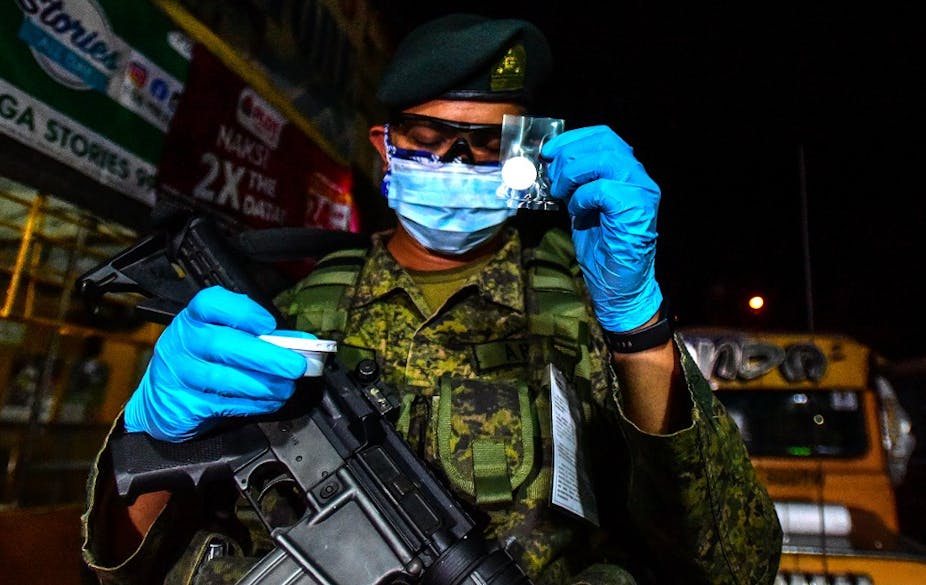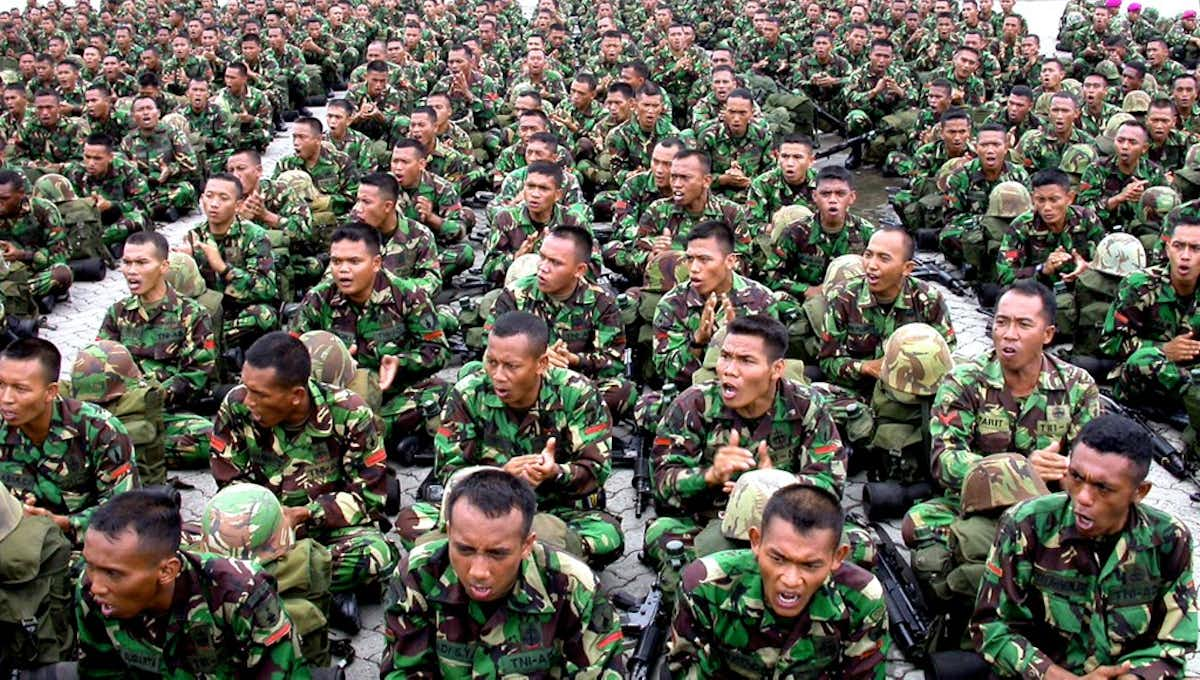
As the coronavirus pandemic continues around the world, the UN has appealed for a global ceasefire to protect citizens in conflict areas.
Armed groups in Yemen and Syria quickly took advantage of the UN’s call. This is understandable and a matter of survival in these war-ravaged countries, where health systems destroyed by conflict mean the arrival of the virus is particularly dangerous.
But armed groups have also declared ceasefires in countries that have better infrastructures and health prospects. The New People’s Army, the armed wing of the Communist Party of the Philippines, called a ceasefire in its 50-year long war in late March, to ensure that all citizens can access testing and treatment. In Colombia, the longest-standing group still fighting, the National Liberation Army (ELN) declared a month’s ceasefire starting on April 1.
While it may seem that these ceasefires will be a stepping-stone to peace, resolving conflict is not so easy. Research suggests that making peace relies on a complex constellation of factors. There is a long tradition of calling ceasefires for health reasons such as polio vaccination campaigns, but these do not necessarily lead to peace.
Governments are actually unlikely to make peace in the middle of a health crisis – they could just as easily see the possibility it provides to further weaken their enemy. An external shock such as the coronavirus presses pause on a conflict, but doesn’t change the underlying structures of the conflict, such as the territory that groups control, the access to weapons and funding or support from diaspora groups.
Therefore the relevant question is whether the coronavirus can change the dynamics of conflict to make peace more likely.
The Aceh example
On December 26 2004, a horrific tsunami hit the coast of Aceh, a small north-eastern province of Indonesia. It killed more than 150,000 people in the area, made hundreds of thousands homeless and destroyed much of the coastal areas. At the time, the Indonesian government was fighting a bloody campaign against the Free Aceh Movement. Over the course of the previous year, Indonesian military had killed an estimated 2,000 people, mostly civilians. The entire region was under martial law and completely closed off to the outside world.

In the days immediately following the tsunami, the Indonesian army escalated its attacks on the rebel group in Aceh. By its own account, it killed more than 220 people.
International recognition
The key factor that changed the Indonesian government’s strategy in the conflict was not the tsunami, but the arrival of foreign media sent to cover the tsunami. The journalists were swiftly followed by the international community bringing aid to reconstruct the province. The international spotlight fell on this previously hidden region and unreported conflict.
Both aid agencies and the UN raised concerns that continued conflict could curtail aid projects. The Free Aceh Movement, meanwhile, called a ceasefire. It entered negotiations as an internationally recognised valid bargaining partner, a condition for talks it had been seeking for the previous two years. Within nine months, the parties had established the peace that still endures in the province today.
It was not the tsunami itself but the consequences of the disaster that brought about these effects. The arrival of the international community changed the dynamics of the conflict, encouraging the Indonesian government into negotiations and legitimising the Free Aceh Movement.
The commitment problem
One of the main deterrents for rebel groups to make peace is uncertainty about their security once the conflict has ended. Groups are often concerned about what will happen if they surrender their weapons and are incapable of defending themselves should a government renege on its pledges. This situation is known as the commitment problem, since rebel groups cannot trust the government to keep its promises. Knowing this danger, they can be extremely loath to enter negotiations.
Research that I’ve carried out on amnesties given by governments during conflict showed that the biggest concern for rebel groups is whether the amnesties will stick in the future, without the risk of prosecution later. More binding amnesties, such as those passed as a law, are more likely to lead to successful settlements. An example is the amnesty law in Algeria in 1999, which gained 98% support in a popular referendum. The binding nature is an expression of the government’s commitment to the peace process.
The commitment problem explains why it’s mainly rebel groups that are militarily stronger who enter negotiations, as they are the ones who can play hardball with the government and refuse to hand over their weapons for as long as possible. If everything then fails at a later stage and they are under threat again, stronger groups have the capacity to regroup quickly and mobilise fighters and funding.
A threat such as the coronavirus does not in itself change the relative strengths of the parties, nor make a weak group more able to make demands. If anything, it makes the rebel group more isolated and irrelevant. For some rebel groups, a ceasefire can seem a desperate act of survival, given the impossibility of fighting while facing a potential epidemic among the troops.
International peacekeeping
In the longer term, a large body of research has shown that peace processes are more successful when there is oversight from the international community, such as UN peacekeepers or international mediators. The rebel groups are reassured that the international community will hold the national government to account later if it betrays the terms of the agreement.
While there is a UN push for ceasefires around the world, it’s unclear whether the international community currently has the capacity to fully commit to peace-making. The international community is often lacking at the best of times, and its overwhelming current priority has to be tackling the coronavirus threat. Meanwhile, many countries are abandoning international solutions by taking national remedies to the coronavirus, closing their borders and protecting equipment for themselves.
The threat of coronavirus may cause a change of heart among combatants and governments, but this will be insufficient in the absence of those conditions that we know are essential for making peace. A willingness to negotiate and international oversight are the features that make peace possible, with or without the impetus of coronavirus.![]()
Lesley-Ann Daniels, Research Fellow, Institut Barcelona Estudis Internacionals
This article is republished from The Conversation under a Creative Commons license.


